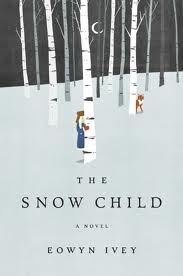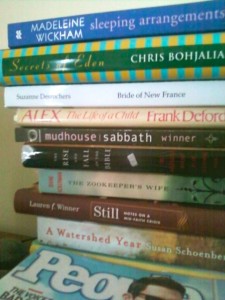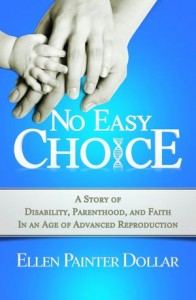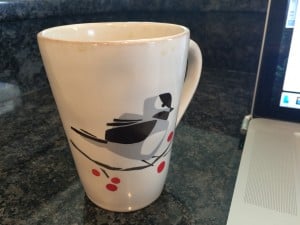I’m taking a short blogging hiatus (for the rest of this week, possibly into next week) to devote time to some other pressing work. I owe blog posts and essays to several people, I haven’t yet filed my taxes, and my bathrooms are really dirty. Plus it’s parent-teacher conference week at my kids’ schools, which means they get out of school a full two hours early. Yippee.
I mean, YIPPEE!!!!
If you are new to the blog and want to roam about while I’m taking my break, start with the top five posts of 2012 thus far:
1. Six Ways to Be Hospitable Toward People with Disabilities
2. Five Reasons I’m Ignoring Your Healthy Eating Advice
3. Eggsploitation’s Bad Science
4. Five Really Bad Excuses for Parking in a Handicapped Space When You Shouldn’t
5. Why Prenatal Screening for Gender and for Disabilities Are Not the Same
If you’re looking for an absorbing book in which to lose yourself for a while, try The Snow Child by Eowyn Ivey, which I am currently reading for the second time through. It so captivated me the first time that I couldn’t bear to leave its possibly-enchanted Alaskan wilderness behind just yet. The Snow Child‘s lovely cover is reason enough to pick it up and maybe even read it more than once, don’t you think?
 Or, you could try one of the books currently residing in the perilously mounting pile on my nightstand.
Or, you could try one of the books currently residing in the perilously mounting pile on my nightstand.
 A Watershed Year is by a local author, my friend Susan Schoenberger. It’s a quiet, thoughtful story of a young woman’s search to build a new life after she loses a friend, who might have become something more if they had more time together before he died of cancer.
A Watershed Year is by a local author, my friend Susan Schoenberger. It’s a quiet, thoughtful story of a young woman’s search to build a new life after she loses a friend, who might have become something more if they had more time together before he died of cancer.
Still is Lauren Winner’s latest sort-of memoir, really more an exploration of how one copes with periods of spiritual emptiness. Winner chronicles the “middle” of her spiritual life, when the energy and engagement of conversion have worn off and she is slogging through life’s inevitable griefs while struggling to rediscover a spiritual center. Winner’s laudable desire to protect the privacy of the other people involved in her particular “middle,” such as her ex-husband, renders Still frustratingly stingy with the kinds of details that make for successful memoirs by grabbing onto us and drawing us into another’s story. This lack of specificity, however, allowed me to more easily connect Winner’s observations to my own life, and the “middle” places where I am stuck, lost, or wandering. I found Still to be both a comfort and a challenge, as well as beautifully written and a quick read.
Alex: The Life of a Child is a 30-year-old memoir by sportswriter Frank Deford about his daughter Alex, who died of cystic fibrosis (CF) at eight years old. I wept through the final chapters of this book, as Deford described his wife Carol’s horror at watching her child cough blood onto her new white sundress, and recalled that his first words after Alex died following several excruciating hours in which she fought to breathe, were, “Oh Carol, she’s died, thank God.” More academically, I found this book an interesting look into the life of a family affected by a serious genetic disorder before the advent of prenatal testing and preimplantation genetic diagnosis gave parents the ability to screen for known genetic anomalies. Alex was the Defords’ second and last biological child. Their older son was unaffected by CF, and after Alex’s death, they adopted another daughter, Scarlett.
Diane Ackerman’s The Zookeeper’s Wife was my book group’s latest pick. It is the true story of a married couple who ran the Warsaw zoo during World War II, and risked their lives to allow Jews and others pursued by the Nazis to hide within its relatively safe walls. My book group’s assessment: An interesting, occasionally amazing story that none of us had heard before, but somewhat lacking in the vivid details we craved, both to understand better how the couple pulled off their many rescues, and to keep readers invested in the story to its end. (In other words, not everyone finished the book. I did, and liked it. Didn’t love it.)
I have yet to read the other books in the pile. Timothy Beal’s The Rise and Fall of the Bible: The Unexpected History of an Accidental Book comes highly recommended by my father and husband. I have to psych myself up to read academic faith stuff, even something accessible like this, and haven’t yet found my motivation. I’ll keep looking. Mudhouse Sabbath is another Lauren Winner book, this one exploring how traditional Jewish practices can enrich Christian spiritual life. My librarian friend Kate lent me an advance reader copy of Suzanne Desrochers’ Bride of New France that she picked up at a library conference. Chris Bohjalian’s Secrets of Eden and Madeleine Wickham’s Sleeping Arrangements were on the bargain table of my local Barnes and Noble.
And I secretly adore People magazine. Well, not so secretly anymore, given that I just blogged about it.
If none of those reads appeal, of course, you could always try this one:
I’ve heard it’s good. If you’re wondering whether this book is for you, here’s a little something the author wrote on “Who Should Read My Book? And Why?”
Despite the teetering nightstand pile, I’m always interested in new book recommendations. If you have any, share them in the comments. Happy reading, and I’ll be back to regular posts by the end of next week.
















